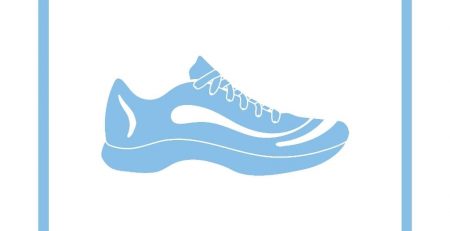10 Mistakes Lab Management Won’t Admit to Making
10 Mistakes Lab Management Won’t Admit to Making
No figure in a research laboratory is as critical as the Principle Investigator (PI). The figurative and literal trailblazer of the lab, the PI helps to direct research and experiments, acts as a mentor for graduate students and postdocs, has immense influence over their students’ career path and areas of research and on a larger scale, sustains funding for the lab and the university that houses it. It is a position we often characterize as noble, gracious, revered and above all else, fair. But even professors are human, and prone to making mistakes, some of which can impact lab productivity and satisfaction. Here are a few that many PIs would be hard-pressed to admit:
1. Playing favorites
No professor would dare confess that certain students are favorites, while others get passed to the back burner both in the quality of their research projects and in time/access to the PI. But it’s a sad reality of any research lab. Sometimes, it comes down to a personality conflict. Other times, certain students simply shine as experimentalists, while others struggle mightily, giving a professor a natural incentive to entrust them with key research. If you find yourself gravitating towards certain students or postdocs, first admit that the favoritism is occurring, and then make a concerted effort to reach out equally to all grad students. Schedule group meetings where everyone has a chance to share their research. Schedule one-on-one time for all students, and air any grievances or disagreements. Assign a more experienced mentor to students struggling with their research. Chances are that the extra attention could do wonders for helping a struggling student become more successful, which directly benefits your lab.
2. Not being open-minded enough about experiments
All professors want to project authority and intellectual ownership of their lab’s research, especially in publications and conferences. Sometimes, however, the best ideas for an experiment or project can come from the students and postdocs that have been working on them day in and day out for years. Don’t dismiss an idea as a knee-jerk reaction just because you’re in charge. It doesn’t diminish your stature or rank in the lab to accept a smart suggestion, especially in today’s multi-collaborative research environment.
3. Giving credit where credit is due
In his brilliant new book entitled “Prize Fight: The Race and Rivalry To Be the First in Science,” Morton Myers MD recounts a myriad of case studies about how some of the most famous scientists of our time, including the discoverers of DNA, antibiotics, MRI machines and other seminal advances, shortchanged colleagues and rivals that contributed to experiments or ideas. No professor would want to be thought of as callous, disrespectful or even worse, a downright thief. However, especially in these hypercompetitive times of shortchanged grant funding and an overabundance of PhD students, establishing credit and authorship can make the difference between that extra grant, a collaboration, students wanting to join the lab, or even tenure. It’s a dark underbelly of science that some insiders have posited needs both methodological and cultural overhaul.
4. Not being organized
Since they are the leaders of their labs and enterprises, it’s often important for professors to give the impression of being extremely organized, if to lead by example. After all, no one wants to reinforce the stereotype of the mad scientist, especially in the media. Nevertheless, every student can easily recount stepping into a professor’s office, sometimes their own advisor, to an office piled high with papers from the 1980s, with files arranged in Excel format, or worse yet, on paper, and fridges and freezers teeming with unlabeled experiments. If you expect your students, postdocs, techs and managers to be organized and up to date, it must start with you. Modernize your file system and communication strategy, and stay consistent. De-cluttering will increase your efficiency, help you produce more science and give you more insight into your staff’s workload and progress.
5. Procrastinating
Everyone does it. Procrastination affects people from all walks of life, all levels of intelligence and careers. Studies show that up to 20% of people chronically delay work they know they need to do by seeking any distraction they can. It is just as likely that an undergraduate in college will procrastinate on tasks as the professors teaching their classes. But it doesn’t have to be a death knell for productivity. It’s a perfectly reversible habit. Understand the basics of why and how procrastination happens in order to meet it head-on. Nowadays, you can even download apps to help boost your productivity mode!
6. Subversive research ethics
A recent study by University of Washington researcher Dr. Ferris C. Fang uncovered an alarming rise in scientific journal retractions over the last decade, with the highest retraction index belonging to The New England Journal of Medicine, one of the most prestigious medical journals in the world. Nature Magazine confirmed the findings, with their analysis showing the early 2000s only accounting for about 30 annual retractions, climbing steadily to 400 in 2011. Taking into account a rise in overall publication totals and better scrutiny to detect fraud and suspect data, leading scientists interviewed by the New York Times put equal blame on fierce competition for finite grant resources among a larger pool of researchers than ever, creating pressure, desperation and even financial incentives to succeed at all costs. Recent science scandals have included two paper retractions by Nobel Laureate Linda R. Buck, the falsification of a purported 36,000 year old artifact linking humans and Neanderthals by prominent German scholar Reiner Protsch von Zieten, and high-profile fraud by Bell Labs researcher Jan Hendrik Schon, who faked the discovery of a new superconductor made of plastic. It is an issue that is not going away in science, and open, honest dialogue is merited about how to best deal with it.
7. Not always being engaged with their lab staff
Nearly anyone who has worked in academia has encountered the “absent-minded professor,” so absorbed in their ideas and research, perhaps traveling often, that they don’t have time to be bothered for simple things like signatures, meetings or progress reports. It is not uncommon to work in a large or famous-enough lab to rarely see your PI, and deal primarily with senior postdocs or lab managers. Communication is a critical gateway to running a successful lab, especially asking the right questions to assess problem areas. While there is nothing wrong with delegating tasks to various staff members, they need to be able to feel that they can access you for critical issues. Graduate students and postdocs joined the lab largely because of your name and reputation, and want the ability to meet on some kind of a regular basis with you to discuss their research. Every professor will have different styles and degrees to which they spend time with their team. However, at a minimum, you should set definitive times to meet with staff members, and use technology such as Skype, email and mobile phones to communicate in your absence.
8. Not placing priority on teaching duties
No professor will ever publicly admit that they either dismiss teaching duties or look at them as a tiresome burden. But the reality is that too many professors, stressed by the demands of publishing, fundraising and acquiring tenure, simply don’t have the time to be the attentive teachers they want to be. At large research universities, unlike small liberal arts colleges, faculty is hired not based on teaching quality, but based on research talent. If you simply abhor teaching or don’t have time for it, be realistic. Spend your summer, or a semester that you don’t teach to create lesson plans and tools to optimize material delivery. Don’t dismiss or disregard student evaluations. They can provide helpful feedback about areas where your teaching strengths lie and where improvements need to be made. If time is an issue, enlist the help of TAs and grad students to alleviate grading, laboratory and office hour duties, so that you can solely focus on high-quality lectures.
9. Not self-promoting, marketing and networking optimally
Although this is rapidly changing thanks to the infusion of younger, tech-savvy professors, as well as the technology itself, it remains a common problem among academics. Most laboratory websites remain rudimentary (if they exist at all), with contact information not readily available and sometimes outdated publications and personnel. Furthermore, how many professors actively maintain a presence on Twitter? Or have a Facebook page for their groups? Few and far between. When attending conferences, many times, professors will either cluster amongst each other at happy hour networking sessions, or disappear to their hotel rooms eschewing networking altogether, especially with younger scientists or potential collaborators. This is a huge mistake. Today’s communication is as reliant on technology as it has ever been. Leverage your web presence to attract a new crop of students, to maintain ties with colleagues and collaborators, and as a tool to promote your research.
10. Not being open to technology adaptations in the lab
Along the lines of utilizing technology to promote the lab to the outside world, some professors cling obstinately to outdated technology within the lab, refusing to at least try updating. We often run into professors who like the idea of using Labguru mobile organizational software iPad app, but question the benefit of keeping a dedicated group iPad in labs and working spaces. Other professors love the machines they’ve had since they first moved into the lab, and don’t see the need to update, even if they can afford it. Some don’t see the benefit of a LIMS system throughout their labs. Try to go outside your comfort zone every so often to implement a new idea, with the consensus of your lab manager and students.














